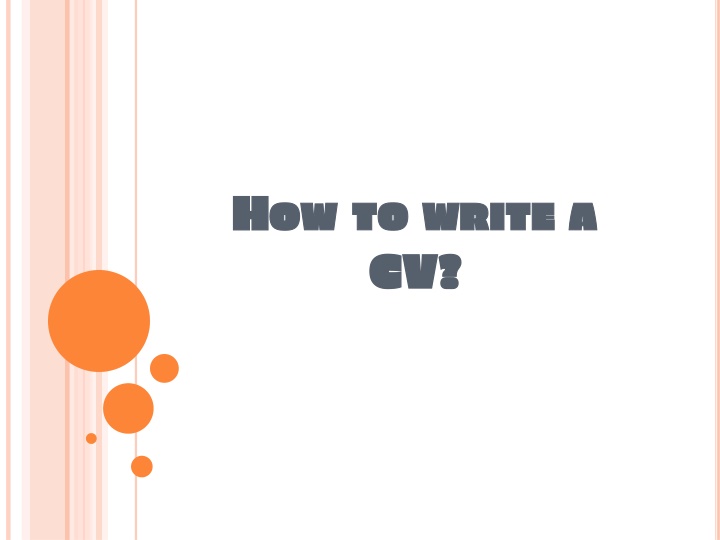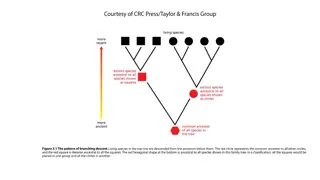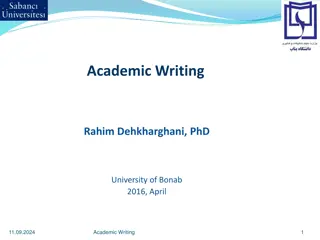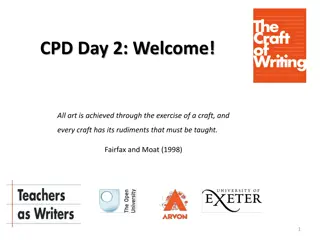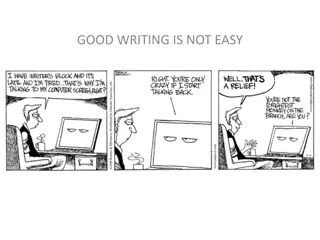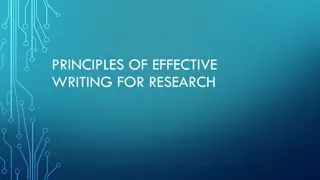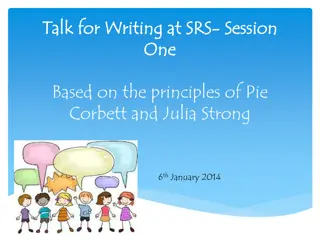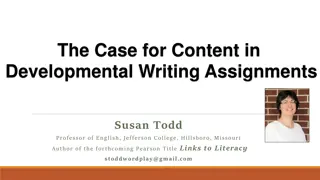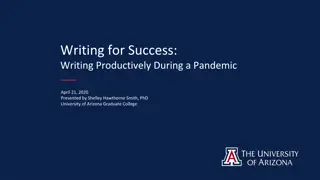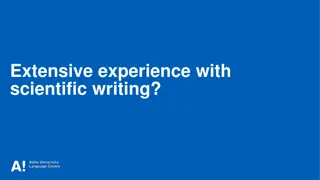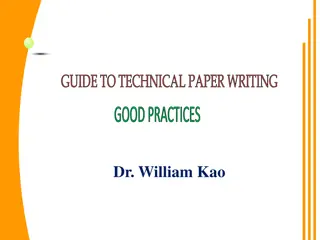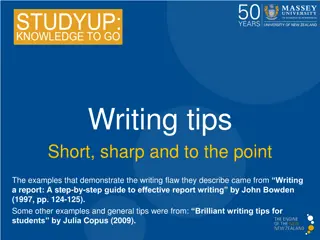Tips for Writing an Effective CV
Creating a compelling CV is essential for job seekers. Learn the key differences between a CV and a resume, understand what information to include, explore helpful tips like using bullet points, accurate headings, and proofreading to enhance your CV quality. Discover the ideal length for a CV and how to structure it effectively to grab potential employers' attention. Start crafting a standout CV today to boost your chances of landing your dream job.
Download Presentation

Please find below an Image/Link to download the presentation.
The content on the website is provided AS IS for your information and personal use only. It may not be sold, licensed, or shared on other websites without obtaining consent from the author.If you encounter any issues during the download, it is possible that the publisher has removed the file from their server.
You are allowed to download the files provided on this website for personal or commercial use, subject to the condition that they are used lawfully. All files are the property of their respective owners.
The content on the website is provided AS IS for your information and personal use only. It may not be sold, licensed, or shared on other websites without obtaining consent from the author.
E N D
Presentation Transcript
H HOW OW TO TO WRITE WRITE A A CV? CV?
CV VS RESUME A curriculum vitae (CV) provides an overview of a person's experience and other qualifications. In some countries, a CV is typically the first item that a potential employer encounters regarding the job seeker and is typically used to screen applicants, often followed seeking employment. by an interview , when A r sum is a document used by persons to present their backgrounds and skills. R sum s can be used for a variety of reasons, but most often they are used to secure new employment.
WHAT INFORMATION SHOULD A CV INCLUDE? Personal details. Education and qualifications. Work experience Hobbies and Interests Skills Referees
Writing a CV can be trickier than writing a resume, because the format changes depending on what type of position you are applying for, where you are located, and what you need to include in your CV. Lets talk about CV writing tips.
CV WRITING TIPS o Choose an Appropriate Curriculum Vitae Format o Have Several Versions of Your CV o Use accurate headings. o Keep it Short o Tell the Truth o Discuss CV writing and seek feedback o Be concise o Use page numbers o Attend to presentation o Proofread, proofread, proofread
Beginning curriculum vitae writers are often flummoxed when they read professors' lengthy CVs. Students often wonder if they too will amass a dozen or more pages of accomplishments. You will, but it will take time. A first curriculum vitae might be a single page long. The only rule for CVs is that they must depict your experiences and competencies accurately. The number of pages entailed to accomplish that goal does not matter. Curriculum vitae grow with careers. How long should a CV How long should a CV be? be? A good curriculum vitae should ideally cover no more than two pages and never more than three. Aim to ensure the content is clear, structured, concise and relevant. Using bullet points rather than full sentences can help minimise word usage.
The primary differences between a resume and a curriculum vitae (CV) are the length, what is included and what each is used for. A resume is a one or two page summary of your skills, experience and education. While a resume is brief and concise - no more than a page or two, a curriculum vitae is a longer (at least two page) and more detailed synopsis.
RESUME WRITING TIPS BY HBR ? Get the formatting right. ? Insert dates for everything. ? Fill up on the buzzwords. ? Choose verbs that mean something. ? Rewrite your r sum for each job application. ? State career objectives or outside interests but be very careful ? The further into your past, the less detail you should have. ? Keep it short. ? No typos.
TIPS ON INTERVIEWS Promote Yourself without Being Self- Promotional Situation Tasks Achievements Results tell a story that covers the following
THREE TIPS FOR ACING AN INTERVIEW Mirror body language. Find common interests. Tell stories with a moral.
HOW TO TALK ABOUT YOUR WEAKNESSES IN AN INTERVIEW ? Prepare an answer. ? Get input. ? Ask a question back.
Assess role readiness. Dig deeper. THREE TIPS FOR CONDUCTING AN INTERNAL INTERVIEW Make it real
